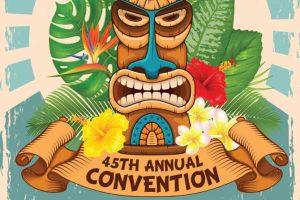In Woods v. LVNV Funding, the Seventh Circuit Court of Appeals recently clarified two standards for Fair Debt Collection Practices Act (FDCPA) claims in identity theft cases.
First, the court somewhat lowered the required showing to prove that a debt is a “consumer debt.” Second, the court heightened the standard that debtors must meet in alleging false or misleading statements in identity theft cases, explaining that “literal falsity is not the standard under” the FDCPA.
This decision is a mixed bag for creditors and other entities subject to the FDCPA.
FACTUAL BACKGROUND
In 2018, someone opened a fraudulent American Airlines credit card with the stolen identity of the plaintiff. The account went unpaid for several months and was purchased by LVNV, which, without knowledge of the fraud, attempted to collect. Shortly afterward, the plaintiff filed a lawsuit alleging the letters sent to him by LVNV to collect the debt constituted “false representation[s],” prohibited by Section 1692(e)(10).
The district court granted summary judgment in favor of LVNV on two bases:
- First, it determined that plaintiff had not met the burden to demonstrate that the account was a “consumer debt,” as is required by the FDCPA. This is because the relevant section of the FDCPA only regulates the collection of consumer debts, not business or corporate debts.
- Second, it held that the letters were not false or misleading “because an unsophisticated consumer would not be deceived by the letters.”
Plaintiff appealed the ruling to the Seventh Circuit Court of Appeals.
HOLDING AND RESULT
The court affirmed the decision of the lower court, but on somewhat different grounds.
First, the court disagreed with the lower court’s interpretation of “consumer debt.” The court noted that there is no requirement of “absolute certainty” as to the purpose of the purchase. There would only need to be sufficient evidence for a jury to find it more likely than not that the balance was a consumer — a fact-intensive and contextual inquiry.
Accordingly, the court held that it was unlikely that a business traveler would purchase a one-way ticket, meaning that the jury could potentially conclude that the trip was for personal reasons. According to the court, that “reasonable potential” that a jury could find in the plaintiff’s favor was enough. LVNV objected that plaintiff should have done more to establish the nature of the debt, including subpoenaing American Airlines, but the court held that plaintiff did not have to go “on such a wild goose chase” and that the circumstantial evidence was enough.
Second, even though the court held that the debt was potentially a “consumer debt” under the FDCPA, the letters sent by LVNV were not false or misleading. As the court explained, the mere fact that a letter in an identity fraud case is “literally false” is not enough to establish falsity — “[i]f a statement would not mislead the unsophisticated consumer, it does not violate the FDCPA – even it is false in some technical sense.”
The court explained that an unsophisticated consumer, upon receiving these letters, would have known the account was not his and known the letters were sent in error, as the plaintiff did. Accordingly, the court held that the letters were not “false” or “misleading” under the terms used in Section 1692(e)(10) and affirmed the district court’s ruling.
KEY TAKEAWAYS
Plaintiffs must now only prove that the evidence permits a “reasonable inference” that the debt was undertaken for consumer purposes.
The case substantially strengthens the “false or misleading” standard in identity theft cases. Now, where a Plaintiff is not likely to be actually misled or deceived into believing that a fraudulent account is theirs, there can be no liability under the FDCPA.
Josh Dickinson and Kyle Klucas are attorneys at Spencer Fane LLP. Dickinson is a partner in the firm’s Litigation and Dispute Resolution and Labor and Employment Groups, representing businesses and professionals across a wide spectrum of disputes, including creditors’ rights. Klucas is an associate in the firm’s Litigation and Dispute Resolution group. His practice is focused on conducting and managing discovery, engaging in motion practice, and translating complex legal issues into positive outcomes.







